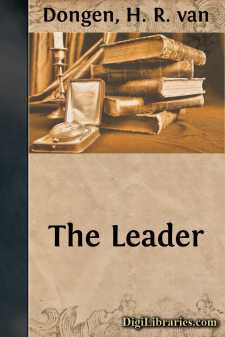Categories
- Antiques & Collectibles 13
- Architecture 36
- Art 48
- Bibles 22
- Biography & Autobiography 816
- Body, Mind & Spirit 145
- Business & Economics 28
- Children's Books 18
- Children's Fiction 14
- Computers 4
- Cooking 94
- Crafts & Hobbies 4
- Drama 346
- Education 58
- Family & Relationships 59
- Fiction 11831
- Foreign Language Study 3
- Games 19
- Gardening 17
- Health & Fitness 34
- History 1378
- House & Home 1
- Humor 147
- Juvenile Fiction 1873
- Juvenile Nonfiction 202
- Language Arts & Disciplines 89
- Law 16
- Literary Collections 686
- Literary Criticism 179
- Mathematics 13
- Medical 41
- Music 40
- Nature 179
- Non-Classifiable 1768
- Performing Arts 7
- Periodicals 1453
- Philosophy 66
- Photography 2
- Poetry 897
- Political Science 203
- Psychology 45
- Reference 154
- Religion 516
- Science 126
- Self-Help 86
- Social Science 82
- Sports & Recreation 34
- Study Aids 3
- Technology & Engineering 59
- Transportation 23
- Travel 463
- True Crime 29
Our website is made possible by displaying online advertisements to our visitors.
Please consider supporting us by disabling your ad blocker.
By Proxy
by: H. R. van Dongen
Categories:
Description:
Excerpt
r. Terrence Elshawe did not conform to the mental picture that pops into the average person's mind when he hears the words "news reporter." Automatically, one thinks of the general run of earnest, handsome, firm-jawed, level-eyed, smooth-voiced gentlemen one sees on one's TV screen. No matter which news service one subscribes to, the reporters are all pretty much of a type. And Terrence Elshawe simply wasn't the type.
The confusion arises because thirty-odd years of television has resulted in specialization. If you run up much Magnum Telenews time on your meter, you're familiar with the cultured voice and rugged good looks of Brett Maxon, "your Magnum reporter," but Maxon is a reporter only in the very literal sense of the word. He's an actor, whose sole job is to make Magnum news sound more interesting than some other telenews service, even though he's giving you exactly the same facts. But he doesn't go out and dig up those stories.
The actual leg work of getting the news into Maxon's hands so that he can report it to you is done by research reporters—men like Terrence Elshawe.
Elshawe was a small, lean man with a large, round head on which grew close-cropped, light brown hair. His mouth was wide and full-lipped, and had a distinct tendency to grin impishly, even when he was trying to look serious. His eyes were large, blue, and innocent; only when the light hit them at just the right angle was it possible to detect the contact lenses which corrected an acute myopia.
When he was deep in thought, he had a habit of relaxing in his desk chair with his head back and his eyes closed. His left arm would be across his chest, his left hand cupping his right elbow, while the right hand held the bowl of a large-bowled briar which Elshawe puffed methodically during his ruminations. He was in exactly that position when Oler Winstein put his head in the door of Elshawe's office.
"Busy?" Winstein asked conversationally.
In some offices, if the boss comes in and finds an employee in a pose like that, there would be a flurry of sudden action on the part of the employee as he tried frantically to look as though he had only paused for a moment from his busy work. Elshawe's only reaction was to open his eyes. He wasn't the kind of man who would put on a phony act like that, even if his boss fired him on the spot.
"Not particularly," he said, in his slow, easy drawl. "What's up?"
Winstein came on into the office. "I've got something that might make a good spot. See what you think."
If Elshawe didn't conform to the stereotype of a reporter, so much less did Oler Winstein conform to the stereotype of a top-flight TV magnate. He was no taller than Elshawe's five-seven, and was only slightly heavier. He wore his hair in a crew cut, and his boyish face made him look more like a graduate student at a university than the man who had put Magnum Telenews together with his own hands. He had an office, but he couldn't be found in it more than half the time; the rest of the time, he was prowling around the Magnum Building, wandering into studios and offices and workshops. He wasn't checking up on his employees, and never gave the impression that he was. He didn't throw his weight around and he didn't snoop. If he hired a man for a job, he expected the job to be done, that was all. If it was, the man could sleep at his desk or play solitaire or drink beer for all Winstein cared; if the work wasn't done, it didn't matter if the culprit looked as busy as an anteater at a picnic—he got one warning and then the sack....












